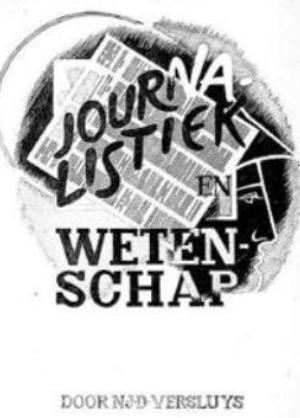Career Stages
Born 1952 in Limburg (Belgium). 1973 BA in Political and Social Sciences, 1975 MA in Communication, 1987 PhD in Social Sciences, Catholic University of Leuven, Belgium (Communication and Development. An Inventory of the Literature Examining the Possibilities of Communication Policies for Development). 1975 freelance journalist (Belgian Broadcasting System, weekly De Nieuwe). 1987 Fulbright scholarship. 1988 Professor of International Communication and Media Policies, Catholic University of Nijmegen. 1988-1994 Visiting Summer School Professor, Cornell University. 1994 Katholieke Universiteit Brussel. 2003 University of Queensland, Brisbane. 2007 University of Massachusetts, Amherst. 2013 City University of Hong Kong, 2016 Huazhong University of Science and Technology, Wuhan, China. 1994-2000 chair of the Unesco-IAMCR Roundtables on Development Communication. 2000-2004 President of the European Consortium for Communications Research (ECCR) and Vice-President of IAMCR. 2011-2016 Unesco Chair in Communication for Sustainable Social Change. Visiting professor at numerous universities around the globe. Since 2007 editor-in-chief of Telematics and Informatics. Married to Patchanee Malikhao, two children.
I would like to start off with your first steps on earth: your childhood and the time as a schoolboy. Could you tell me something about your parents, and about your first professional dreams?

Jan Servaes (source: private)
I grew up in Beringen, in the Northeast of the Flemish part of Belgium. This is close to both the Dutch and the German border. In those days, Beringen was a coal-mining town. I went to college there and studied the old traditional humanities.
Latin and Greek.
I was interested in languages, yes. Also in history and geography but less in more scientific courses such as mathematics or chemistry. In those days, the discussion about the future of mining took place. The college was a bit elitist. We were groomed to become intellectuals and leaders of society, but there were also kids of laborers like me studying. So, we also paid attention to the social issues around us.
What about the so-called student revolution?
That was part of the context. The revolts in Paris in 1968 had an impact on Belgium, where it got a bit of a twist.
The Flemish and the French speaking culture.
Historically, French had always been the dominant culture. Most of the heavy industrial and hence political weight, associated with bourgeoisie and nobility, resided mainly in Wallonia and Brussels. The Flemish were taught to become like them.
A form of cultural imperialism.
The tendency of the Flemish has always been to come up for their language rights. This cultural struggle crystallized in Leuven, the oldest university in the Flemish part of Belgium. The slogan became “Walloons out”. After a political crisis with demonstrations, strikes, and a new government, it was decided to split the university into two: a francophone campus in Louvain-la-Neuve, and the Flemings remained in Leuven. The language divide continues to cause political tensions up to today.
Leuven was the place where you started your academic career.
I entered there in 1970, two years after “Leuven Flemish” happened. At the international level, it was also the time of military regimes in South America, and the Cultural Revolution in China. We were concerned with labor and social rights. On campus, parties like the Maoists or the Trotskyists and all the ideologies available at the Left (but also Right) were around in those days. As a student I attended their meetings, participated in protest marches, and all those things.

Moscow 1997: Denis McQuail, Patchanee Malikhao, Kaarle Nordenstreng (source: private archive Jan Servaes)
Did you become a member of a political party?
No, never. I had my issues with all of them. Up to a point, my motivation was intellectual. I really wanted to study political discourses and societal change rather than becoming an activist. With a group of friends, we started a book club to discuss the ‘heavy’ work: Marx of course, but also Gramsci, Althusser, Habermas, Bourdieu, Foucault. Introductions to Marxism and Maoism were offered in philosophy courses.
At a Catholic university?
Yes. These traditional Catholic professors could make a distinction between ‘this is it’ and ‘this is what we think about it’; in other words, ‘facts and ideas’ were clearly separated from ‘opinions’. Nowadays it seems as if everything has become blurred, especially on the online social media. While engaging in often heated debates and discussions, challenged to clarify or provide more arguments, I gradually started writing for local student papers.
Was journalism ever an option?
Yes. What I thought journalism to be was part of my motivation to go to college. My family has always taught me to ask critical questions.
What did your parents do for a living?
My mother was the daughter of a wholesale agent in Beringen. Her father had a shop catering for local craftsmen. My mother was sent to a traditional Catholic boarding school. They were not the top of society, but had upward ambitions.
What about your father?
He grew up in Houthalen, a town 30 kilometers from Beringen. He was the oldest of eight children in a baker’s family. In line with tradition, he was sent to a Catholic seminary and destined to become a priest.

Elizabethtown Conference 1988. Left to right: Joe Straubhaar, John Lent, Bella Mody, Radio Director Voice of America (source: private archive Jan Servaes)
So, he got a good education.
Yes, but that ended abruptly. During the Second World War, his parents died. As he was the oldest, he had to take care of his brothers and sisters. While they were young and continued their education, he needed to keep the bakery open. And that’s what he has been doing for the rest of his life. Every day he normally left around 7 p.m., spent the whole night in the bakery in Houthalen and arrived back home around seven in the morning. He hasn’t had much of a family life.
Do you have siblings?
We were a family of two sons. Both our parents pushed us to study hard, to focus on education and to do the right thing. For whatever reasons, I did so.
And your brother?
My younger brother finished secondary school but didn’t want to continue. At one point he decided to go to the mine, though in the last days of that industry. He ended up unemployed for quite a number of years. While I was abroad he took care of our sick mother. Now, he is a pensioner too. May I add another anecdote in that regard?
Yes, please.
When I was at the university already, I went to my hometown with one of the Leftist student groups to express support for the striking miners. We arrived at the mine at six o‘clock in the morning when the miners arrived for their daily shift. Some of them with whom I grew up saw me and asked: “What are you doing here? Why aren’t you in Leuven studying?”
What did you answer?
I said, “I’m here to sympathize with your cause.” I’m getting a bit emotional now. They told me, “You are more important to us when you study and can help us out in the future, rather than becoming a bit of a silly joke here at the mine.” I have never forgotten their harsh but honest comments.
That’s a strong motivation to go on at university.
Right. These people are still my friends. Whenever I go to Belgium, we meet. That’s one of the things that shaped my character.
Since when did you know that you wanted to become a scholar, a communication scholar?
That was the next step. I always had an interest in social issues. Gradually, my interest in the so-called Third World became more explicit. I became involved in the Anti-Apartheid movement and traveled to Africa. I started to submit book reviews to De Nieuwe, a then important weekly for critical intellectuals. The editor-in-chief had worked at the British New Statesman and tried to copy its style and format. In the US, you had the I.F. Stone Weekly, which was also a critical review of the week from a leftist perspective.
Your book reviews got published.
Yes. After a while the editor-in-chief invited me to contribute more articles. On a freelanced basis, I became more and more involved in De Nieuwe and its sister monthly Tijdschrift voor Diplomatie.
Let’s go back to your interest in the Third World.
Yes. I discovered Latin America as a hotspot for new ideas in development, the so-called dependency paradigm. I disliked both the Soviet approach and the Western modernization perspective. Out of the blue, I applied for a scholarship in Mexico.

Cees Hameling (Photo: Bob Bronshoff, Bijzondere Collecties Universiteit van Amsterdam, Inv.-Nr. 157.585)
That is why you had to learn Spanish.
I mastered it after a while. Under president Luis Echeverria, Mexico had become the welcoming place for intellectuals and political refugees escaping the Latin American dictatorships. It became a free haven for Leftist thinking. My fellowship linked me to the UNAM university, but I also spent time at ILET, the Instituto Latinamericano de Estudios Transnacionales, where I met people like Fernando Reyes Matta, and Juan Somavia, but also Herb Schiller and Cees Hamelink for the first time. I was expected to be in Mexico for one year only, but a Belgian editor asked me to report on the revolutions in Central America. Nicaragua, Guatemala. I agreed, again on a freelanced basis.
This still doesn’t look like an academic career.
I had two options. Either I continue as a journalist writing stories or I try to do development aid work. Traveling around you meet missionaries and social workers. In addition to writing stories, I sometimes assisted some groups. Back in Belgium, the Catholic aid agency Broederlijk Delen asked me whether I wanted to join their project evaluation team for Latin America.
Did you agree?
Yes. I was sent out a couple of times to Latin America, but then I was informed by my former professor that there was a position available as his assistant.
The road to a professorship, finally.
I had always had a decent relationship with Luk Boone. He was supportive, also ideologically. We looked in the same way on the role communication should play in society, though his focus was mainly on the Belgian press and broadcasting system (see Servaes 1998). After my MA studies, I worked as a research documentalist at the Centre of Communication Studies in Leuven. In fact, this was a voluntary position as a conscientious objector, as I refused to go into military service, which was still mandatory in those days. Instead of one year, one had to ‘serve’ for two years.
Working at a university was a productive way objecting to the military.
Indeed, I could do research on subjects that I was interested in. Therefore, I knew the departmental culture and Luk Boone knew me. We started, together with colleagues and friends from other universities, a Flemish Working Group on Media Research, published opinion pieces in the press and two books critically assessing the Belgian “consciousness industry”, a concept we adopted from Hans Magnus Enzensberger (Servaes 1979, 1981). However, apart from teaching, my main project was to start a PhD on development communication. That topic has been with me forever. Initially, I was very ambitious. I wanted to do proper research comparing different national communication policies.
In the Unesco context?
They commissioned and published all these country studies back then in the 1970s, yes. Communication plans for most countries in the world. I wanted to do something similar. I wanted to compare national communication systems in a Third World context and come up with an ideal communication platform for social purposes.
Sounds quite expensive.
In those days, research was still funded properly. Whenever I applied for a travel grant, I normally got it. I spent quite a bit of time in different parts of Asia, Africa and Latin America. I started to meet names in the wider community, including politicians, media and business people. To further my knowledge and understanding, I went to The Hague for a postgraduate degree in communication policy and planning for development, coordinated by Cees Hamelink. One of the teachers was Alan Hancock.
Unesco‘s communication director.
He just returned from a position in Bangkok. He asked me whether I would be interested in spending some time in Thailand and helping Thammasat university with a master program in communication.
What did you answer?
Why not. I went to Thailand on a Unesco assignment for a year. This got extended for a second year. I met my current wife there. We are still happy together. Thailand was not part of my initial career plan. This is serendipity. Over the years, I became fascinated by the culture in this part of the world. One of the arguments I have with most of the modernization theorists is that they have overlooked culture. That is definitely something I have learned to appreciate in Asia.
Could you illustrate this with an example, please?

Hawaii conference 1987 in Honolulu. First row: 3 Leonard Chu, 4 Syed Rahim, 5 Goodwin Chu, 8 Wilbur Schramm, 9 Neville Jayaweera, 10 Joung Im-Kim. Second row: 10 Shirley White. Third row: 2 Tom Jacobson, 3 Joe Ascroft, 4 Jan Servaes, 8 Bob Hornik, 9 John Mayo, 14 Steve Chaffee, 15 Ev Rogers (source: private archive Jan Servaes).
One important and often forgotten conference I attended was the 1987 seminar on Communication and Change, hosted by the University of Hawaii and the East-West Center in Honolulu.
Coordinated by Wilbur Schramm and Daniel Lerner.
Like the two previous seminars in 1964 and 1975, yes (Lerner/Schramm 1967, Schramm/Lerner 1976). This seminar was meant to review and synthesize the status of the field of development communication over a ten-year span. The proceedings never got published. I was the only European at the seminar.
Where did the other participants come from?
From Asia, there were Godwin Chu, Leonard Chu, Neville Jayaweera, and Syed Rahim, for example. Joe Ascroft from Africa and US-scholars, of course. Schramm, Ev Rogers, Steve Chaffee, Bob Hornik, John Mayo, Tom Jacobson, Shirley White. One could observe a gradual shift in focus and perspective, which was not appreciated by all participants. While a number of mainstream scholars opened the seminar with their US-based assessments and models, the comments from the floor and exchanges during coffee breaks expressed the need for ‘another’ way of looking at communication research. As a result, many of the ‘names’ left early. Those who stayed started exploring the new emerging models, especially from an Asian perspective (Servaes 2007).

Bob Hornik, 2011 in his office in Philadelphia (Photo: Michael Meyen)
1987 was the year you defended your PhD and applied for a Fulbright scholarship.
In the Leuven tradition (it has changed since), you can‘t stay at the university you graduated from. The scholarship was a very nice offer because it was a Scholar-in-Residence Fulbright.
What does this mean?
You are funded completely by the system. I spent a year in the US and could pick and choose where I wanted to go. One of my positions was at Elizabethtown, a small college town in Pennsylvania. From there, I could easily travel to New York and Washington, for example. I had friends at the Inter-American Development Bank and at the World Bank. Hamid Mowlana, whose work I had read, invited me to guest-lecture at American U. I also introduced myself to the State Department and went to the Voice of America.

Hamid Mowlana at the IAMCR conference 1978 in Warsaw. From 1994 to 1998, Mowlana was president of the IAMCR (Source: private archive Werner Michaelis).
You started establishing a network.
Ever with the idea to continue the work I had been doing for my PhD. At Elizabethtown, they asked me to organize a conference on international communication. I invited John A. Lent, Bella Mody and Joe Straubhaar, for example. Brenda Dervin, to whom I was introduced in the mid-1980s, invited me to teach at Ohio State.
ICA‘s first female president.
She wanted to bring European and Third World scholars to the American scene. For example, I met Dallas Smythe, George Gerbner, Joe Rota, and David Berlo.
The founder of the Michigan State school (cf. Meyen 2012).
It is important to study US scholars not only from a political or an academic perspective. Conservatives versus liberals, quantitative versus qualitative. How many of these people have professional capacities and how many just know the ivory tower? The latter dominate ICA and most universities.
Did you think about staying in the US?
My last position during the Fulbright year was at Cornell. They even asked me to stay. I liked the library and university life, but was not ready for US politics and culture yet (smile). I accepted a visiting summer school appointment. For a number of years we enjoyed summer in the Finger Lakes region. My wife, who studied in Rochester at RIT and was also offered a job, wanted to go back to Thailand. We decided to marry but I didn‘t see myself in Thailand either. I accepted an invitation to Nijmegen.
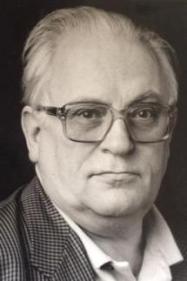
James Stappers (source: his family)
With James Stappers and Karsten Renckstorf (cf. Hemels 2015).
Both with links to the German scholarly community, yes. Renckstorf had a bit of a social interest but everything had to be grounded in data (cf. Konig et al. 2009). I had my fights with him on that basis. Anyway, those days in Nijmegen were not too bad for me because they allowed me to do what I was doing.
Third World communication issues.
I had become visible in the international arena. In IAMCR, together with Tom Jacobson, we started a working group on participatory communication research. Tom was also connected to Brenda Dervin.
Why did you start that group?
When we submitted panel proposals to other sections, they turned us down. International Communication or Political Economy. Especially the PE section with people like Graham Murdock and Colin Sparks obviously didn‘t like what we were doing because it was not Marxist enough. We had more Freirian approaches. However, there was quite a bit of interest in our meetings. At one conference, we were even the group with the most papers.
That‘s how you rose in IAMCR.
Some nominated me for a vice president position. There were a couple of internal fights. Many primadonnas around. When the votes were counted, Cees Hamelink, who was the chair of the election committee, told me that I got more votes than anybody else. I could have easily become the president if I would have been nominated for it.
Why didn‘t you go for presidency?
I wasn’t that ambitious. As a vice president, I argued that IAMCR should become more visible as a publisher and producer of research. I tried to get funding from Unesco and other sources. I already had experience in that regard.
Where did this experience come from?
In my days as a PhD student, Jim Halloran asked me to coordinate two annotated bibliographies on communication policies, a general one and one on Western Europe. In the pre-computer age, that was a lot of time-consuming work, but it improved my training in data processing and raised my visibility on the international level. Later on, I revived a dormant book series with Hampton Press and I negotiated with journal publishers for discounted subscriptions for IAMCR members.
Responsible jobs.
People like Kaarle Nordenstreng, Hamelink, Halloran, Dervin, Wolfgang Kleinwächter and Yassen Zassursky obviously appreciated what I was doing. They all said, “Okay, we need to decentralize IAMCR. We need a European angle to IAMCR.”
That’s how ECREA started (cf. Servaes 2015).
I was willing to give it a try but I didn’t want to get a European version of IAMCR.
Why not?
Because I had seen the games being played by people who were not very committed. Some people like to put their names on top of everything but they never do the hard work or deliver the goods.
Despite all this, you tried it.
I started talking to people about the idea of a European association. That created more hype and critical mass. You know about the stages we went through (cf. Servaes 2015). It was not always straightforward. At one point, we also had an issue with some German colleagues who wanted to do their own thing. They split from the original project. In the end, ECCR became ECREA.
Without you.
At that time, I had already left Europe. I was in Australia back then. So, I couldn’t carry this much longer. Fortunately, a friend from the francophone part of Belgium was willing to step in.

Moscow 1997: Denis McQuail, Patchanee Malikhao, Kaarle Nordenstreng (source: private archive Jan Servaes)
François Heynderickx.
He, Rico Lie and Andrea Ricci, two of my PhD students. Especially Andrea Ricci connected me to the European Commission and politicians he knew. Let’s face it: at those levels communication is a quantité négligeable. They all talk about communication but they are not interested in the way we understand it. Public relations and journalism: okay. That’s only the professional side. If they want to have scientific research, they ask a political scientist rather than a communication scholar.
Do you see any reasons for this?
In their models and theories, communication scholars are often too far away from reality. There are exceptions, of course. What I have learned as editor-in-chief at Elsevier: In the hierarchy of disciplines, communication doesn’t count. Within communication, we have another hierarchy.
The history of communication doesn’t count when it comes to political communication.
That’s one example. If I may say so, notwithstanding the rich European tradition, European communication research has been taken over by American approaches. As a result, again, we need to reinvent our importance in the European context. Data crunchers can be replaced by anybody.
Do you still remember why you became an IAMCR member in 1978?
Of course. I met people like Cees Hamelink, Luis Ramiro Beltran, Michael Traber (who published one of my first ‘scholarly’ articles in WACC’s Media Development) and Bob White who said, “You need to become visible in the academic world.“ Their home was IAMCR, not ICA. For me, that was the logical next step.
What was your first IAMCR conference?
Paris in 1982. Then Prague 1984, I flew there from Bangkok.
Did you like the conferences?
I wrote about that in the Leuven communication journal. It’s in Dutch (cf. Servaes 1982).
What did you say?
It’s good for networking, it’s good to meet people. In fact, it’s much more about social issues than about academic issues. That has remained my overall assessment. In those days, I was already very critical about communication studies in general. In the Flemish and Dutch context, together with a group of co-students, we wrote about the conferences we attended. The title read sort of “If you want to hear some nitwits talking nonsense, come to a communication conference.”
And Prague in 1984?
This was my introduction to the international community. I had two papers prepared, one on national communication policies and another one on paradigms. At the conference, everything was a bit improvised. When I was supposed to present, the session chair stopped the presentations.
Why did this happen?
For reasons of time. I was still a student in those days. We were asked to put our papers on a table for those interested. Poster sessions were not part of the program yet. So I went to another panel. At once, a Belgian colleague rushed in and called me back. Somebody had read my paper and said that it was important. They demanded a proper presentation. Then, I got a good reception. Many comments, mainly positive ones.
A kind of hazard introduction.
At the next conference in New Delhi, I shared a room with Karol Jakubowicz from Poland. Karol was a real scholar. He worked for the Polish TV but understood how to do proper research. We stayed in touch afterwards. He was very helpful when I started contacting Eastern European institutions and scholars for the ECCR later on.
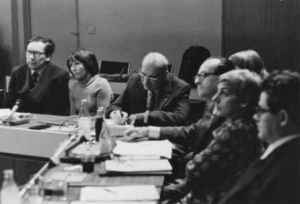
IAMCR in Leipzig, 1974. Very left: Yassen Zassurski. Also on the display right of the interpreter: Emil Dusiska, Werner Michaelis (both from Leipzig) and Alice Bunzlova (Prag; Source: Privat Archive Werner Michaelis).
How would you describe your relationships to colleagues from Eastern Europe such as Yassen Zassursky back then?
We had met and were nice to each other. But initially I wasn’t really into serious discussions. Yassen was a very good diplomat and a real gentleman (cf. Zassursky 2016). My appreciation increased once I got to know him better during the negotiations for the European association. Together with his colleagues at Moscow State University he organized one of the first ECCR conferences in 1997.
Is there any association that you would call your academic home?
For quite a while, my home was the Participatory Communication Research working group at IAMCR, of course. I didn‘t mind being in IAMCR. I had more of a problem with ICA. George Gerbner always joked that they should change their name and call themselves American Communication Association (cf. Wiedemann/Meyen 2016). At one stage, Klaus Krippendorff had the ambition to become the coordinator of all the international associations.

Klaus Krippendorff, 2011 in Philadelphia (Photo: Michael Meyen)
Did he contact you in the ECCR formation process?
We had our discussions with him, yes. He was a bit in between IAMCR and ICA and needed some fellow travelers. But let’s go back to your question of ‘home’.
Yes, please.
I call myself more an anthropologist than a social activist. I like to observe things as close as possible. In order to keep the distance, I need a kind of detachment. So, when it comes to homes, I normally enjoy the places I go to but the big conference model doesn’t work from an academic perspective. At least not for the kind of research I’m interested in.
Your CV is an amazing collection of memberships, responsibilities, projects, and publications. What are your very personal career highlights?
Until May of this year, I’ve been the Unesco Chair in Communication for Sustainable Social Change. That was a position which I got in the US when I was affiliated to the University of Massachusetts. Together with two or three others, I was the only Unesco chair in communication, based in the United States. At the State Department, John Kerry supported me. He was the chair of the Senate‘s foreign relations committee at the time. The academic process was partly linked to the Unesco commission in the US and partly to the Orbicom network at the University of Quebec in Canada.
Sounds quite distinguished.

Vilnius University 1999, Faculty of Communication. Local students and professors plus Cees Hamelink (third from left), Kaarle Nordenstreng (8), Annabel Sreberny (9) and Jan Servaes (right) (source: private archive Jan Servaes).
That’s why I consider it something I feel proud about. Another honour was the invitation by the World Bank to chair the scientific research committee for the first and only World Congress on Communication for Development, which was held in 2006 in Rome. The committee had to select the academic papers. At the end, I was about to resign because politics took over again. The organizers wanted to push their own positions and didn’t like most of the good but critical academic papers. That’s part of the game. I’m still involved in some World Bank projects on climate change.
Do you have any influence there?
I’m not always in agreement with the policies and the methodologies they use. Most of it is social marketing involving filmmakers or PR agencies. At least, I have a bit of a foothold there. They tend to listen to me. In academia, I was not always successful either. Let’s not forget that the academic culture is very conservative and has nowadays become a business (cf. Servaes 2012). In certain cases, I was isolated or cornered but I’ve never looked at this as failures. It’s much more about learning what is going on in order to do it different in the future.
Anything else you want to emphasize?
I still get emotional when I see real communication taking place, in projects for example, which often don’t get documented. In my writings (Servaes 1999), I may have identified a couple of broad theories and paradigm shifts in communication, but for me, social justice is still very important. I continue to question the mainstream from a people’s perspective. Social media is great but it’s not the alpha and omega. It’s not the ultimate solution for what we as academics should try to promote. I prefer a proper dialogue, a more participatory and democratic way of communicating.

Beijing 2002. From left: Jan Servaes, Vincent Mosco, Joseph Man Chan and Junhao Hong (source: private archive Jan Servaes).
Your Unesco chair was named sustainable social change. Is our academic discipline able to change or to improve the world? Should we aim at change and improvement?
At the moment, I’m calling for papers for a handbook on communication for development and social change. I often only half-jokingly say that 80 percent of what is taught as communication research at universities is useless in terms of sustainability and social change. Together with my students from different parts of the world, we try to identify sustainable indicators and design resilient frameworks for communication for social change. However, here in Thailand, communication research is all about social marketing, diffusion of innovations and technology assessment. We still have a long way ahead of us.
References
- Daniel Lerner/Wilbur Schramm: Communication and Change in the Developing Countries, Honolulu: University Press of Hawaii 1967.
- Joan Hemels: Kommunikationswissenschaft in den Niederlanden. Feature. In: Michael Meyen/Thomas Wiedemann: Biografisches Lexikon der Kommunikationswissenschaft. Köln: Herbert von Halem 2015.
- Ruben P. Konig/Paul W.M. Nelissen/Frank J.M. Huysmans: Meaningful Media. Communication Research on the Social Construction of Reality. To honour Karsten Renckstorf’s academic career. Nijmegen: Tandem Felix 2009.
- Michael Meyen: International Communication Association Fellows: A Collective Biography. In: International Journal of Communication Vol. 6 (2012), 2378-2396.
- Wilbur Schramm/Daniel Lerner (eds.): Communication and Change: The Last Ten Years – and the Next. Honolulu: East-West Center 1976.
- Jan Servaes (ed.): Het web van de media business. Doorlichting van de bewustzijnsindustrie in Vlaanderen. Leuven: Kritak 1979.
- Jan Servaes (ed.): Van ideologie tot macht. Doorlichting van de bewustzijnsindustrie in Vlaanderen. Volume 2. Leuven: Kritak 1981.
- Jan Servaes: De I.A.M.C.R. congresseerde (Paris, 6-10 September 1982). In: Communicatie Vol. 12 (3), 28-30.
- Jan Servaes: Een samenloop van omstandigheden In: Adriaan Hendriks/Jos Huypens/Jan Servaes (eds.): Media en Politiek. Liber Memorialis Luk Boone Leuven: Acco 1998, 15-22.
- Jan Servaes: Communication for Development. One World, Multiple Cultures. Cresskill, NJ: Hampton Press 1999.
- Jan Servaes: Participatory Communication for Development and Social Change: Some reflections and suggestions. In: Journal of Development Communication Vol. 18 (2007), 11-23.
- Jan Servaes: Homo academicus: Quo vadis? In: Silvia Nagy-Zekmi/Karyn Hollis (eds.): Global Academe: Engaging Intellectual Discourse. New York: Palgrave-MacMillan 2012, 85-98.
- Jan Servaes: ECREA, quo vadis? In: Communications Vol. 40 (2015), 1-20.
- Thomas Wiedemann/Michael Meyen: Internationalization Through Americanization: The Expansion of the International Communication Association’s Leadership to the World. In: International Journal of Communication Vol. 10 (2016), 1489-1509.
- Yassen Zassursky: I Tried to Stop the Cold War Mentality. In: Michael Meyen/Thomas Wiedemann (Eds.): Biografisches Lexikon der Kommunikationswissenschaft. Köln: Herbert von Halem 2016.
Recommended Citation Form
- Jan Servaes: I continue to question the mainstream. In: Michael Meyen/Thomas Wiedemann (Eds.): Biografisches Lexikon der Kommunikationswissenschaft. Köln: Herbert von Halem 2018. http://blexkom.halemverlag.de/iamcr-servaes/ (access date).
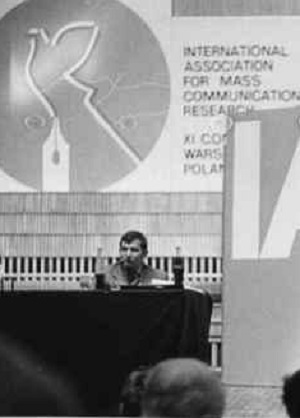
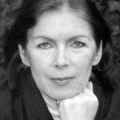

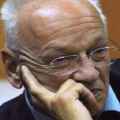
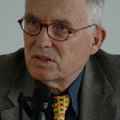
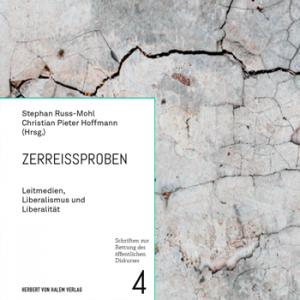
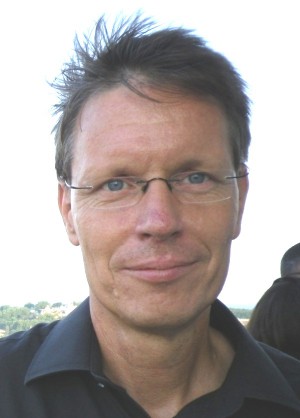 Michael Meyen is professor of communication at LMU Munich.
Michael Meyen is professor of communication at LMU Munich.

